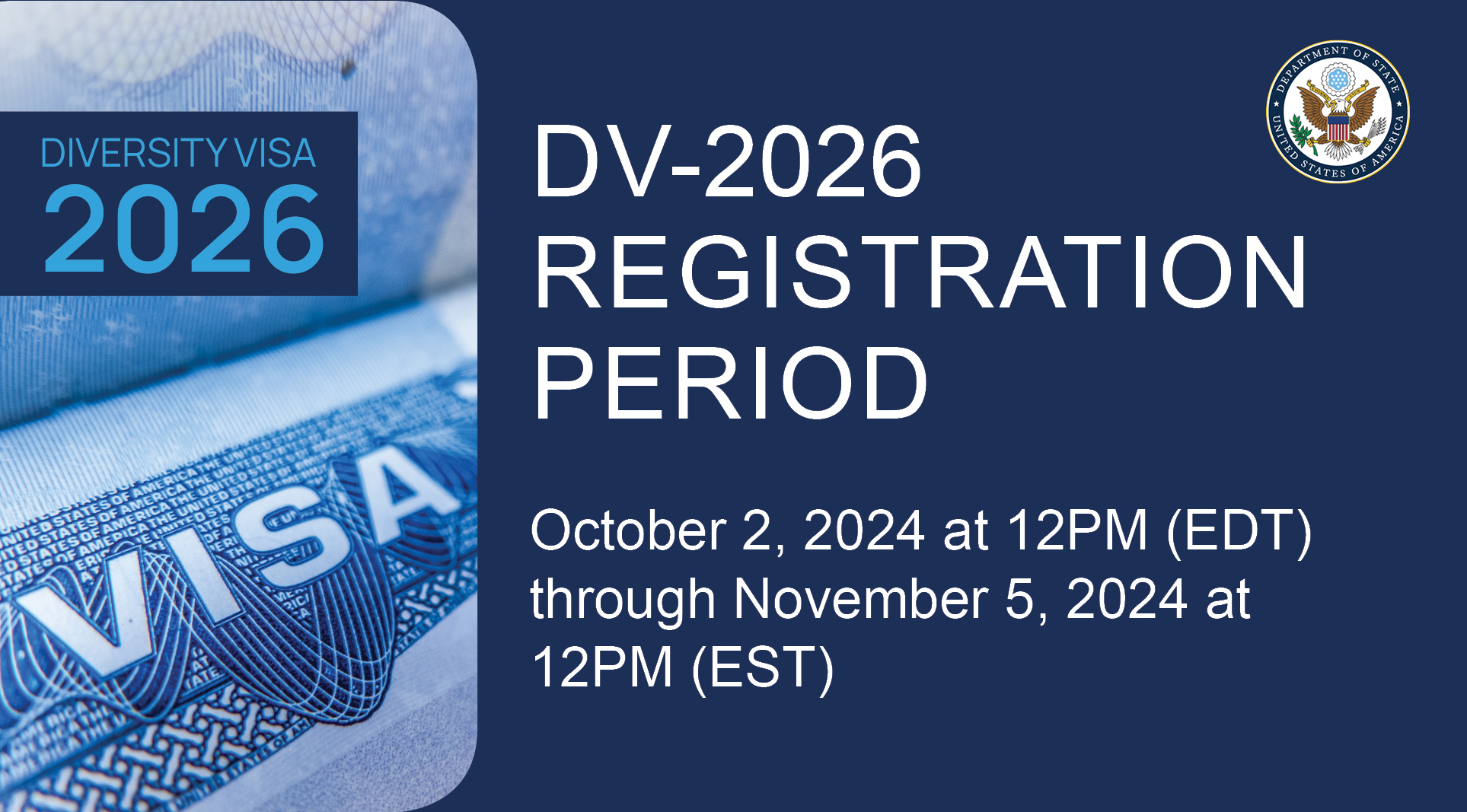 Great news! Online registration for the Diversity Visa Lottery Program for fiscal year 2026 (DV-2026) is now open and will remain open until November 5, 2024.
Great news! Online registration for the Diversity Visa Lottery Program for fiscal year 2026 (DV-2026) is now open and will remain open until November 5, 2024.
What you need to know
Deadline for Registration
The State Department is accepting online registrations for the Diversity Visa Lottery program for Fiscal Year (FY) 2026 from now until Tuesday, November 5, 2024, at 12:00 noon, Eastern Standard Time (EST).
It is completely free to submit an online registration.
Foreign nationals who want to have a chance of being selected must register for the lottery by this deadline.
Submission of more than one entry for a person will disqualify all entries for that person.
The Fiscal Year 2026 DV lottery program will have up to 55,000 green cards up for grabs that will be selected through a randomized computer-generated process.
Winners for FY 2026 are expected to be announced starting May 3, 2025, through September 30, 2026, on the Website by selecting DV Entrant Status Check.
Why should I apply?
Foreign nationals selected in the FY 2026 lottery are eligible to file their green card applications starting October 1, 2025.
Please note that all who are selected in the DV 2026 lottery must apply for their immigrant visas during fiscal year 2026 (October 1, 2025, through September 30, 2026).
Once all 55,000 diversity visas have been issued, the program will end. That is why it is so important for applicants to apply for an immigrant visa as early as possible.
 Visa Lawyer Blog
Visa Lawyer Blog











